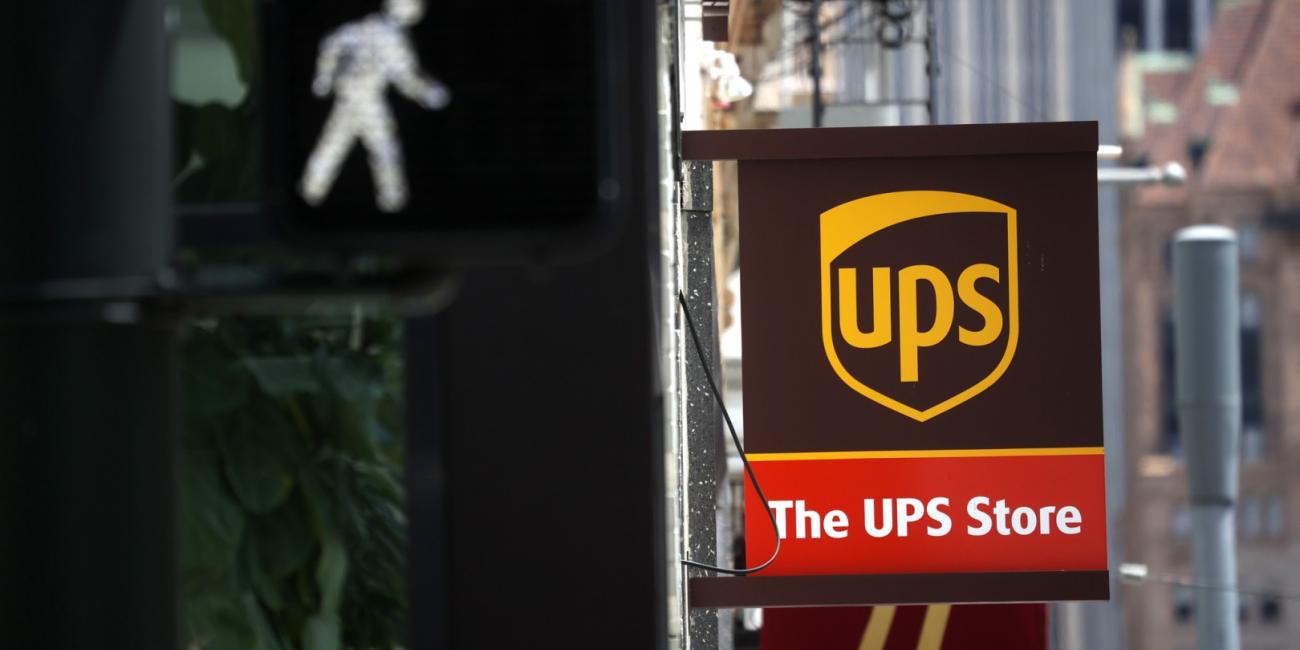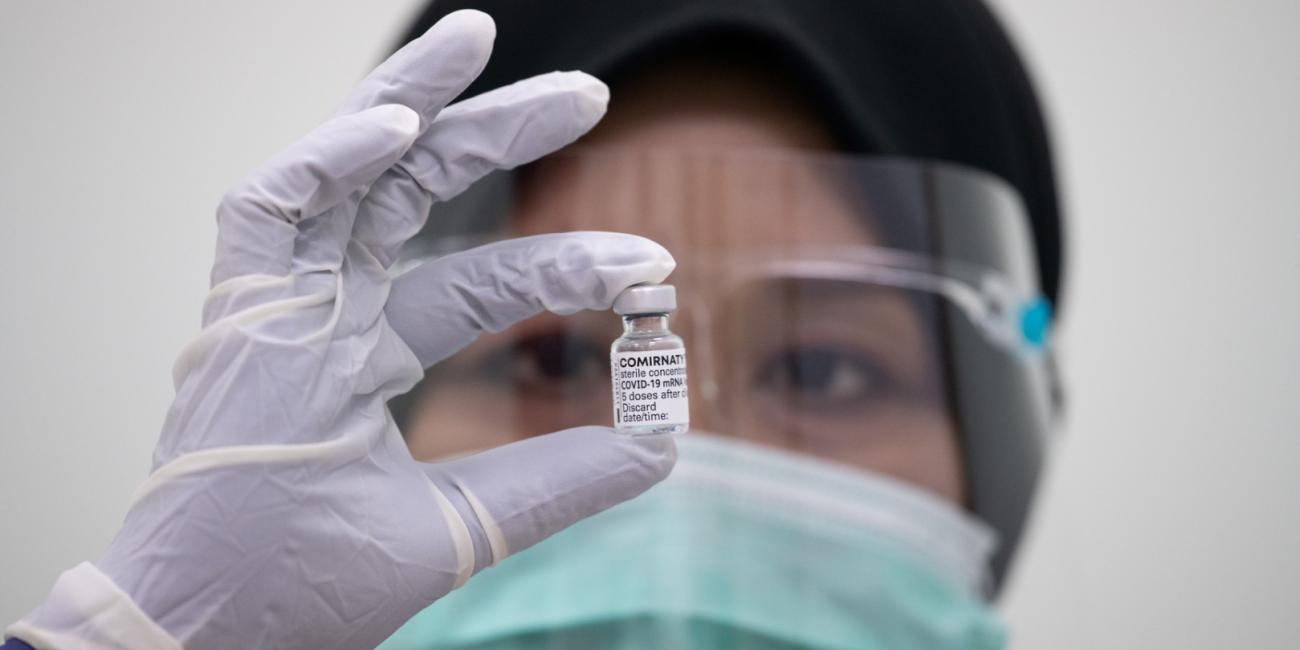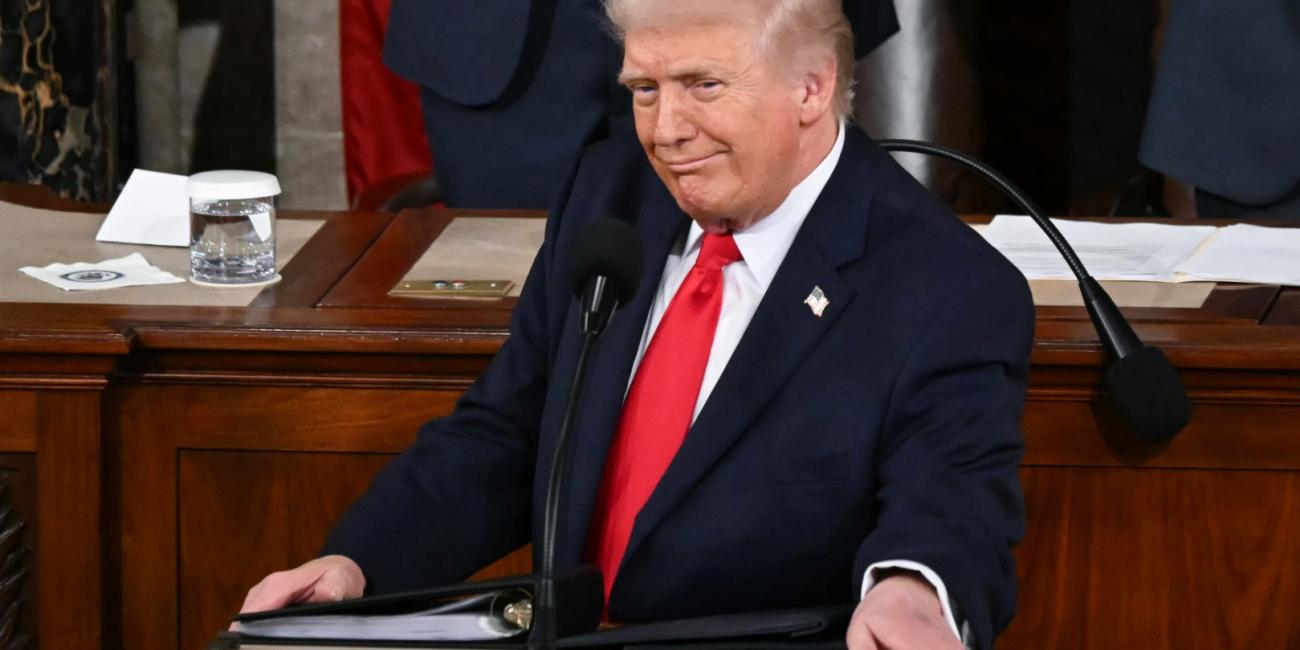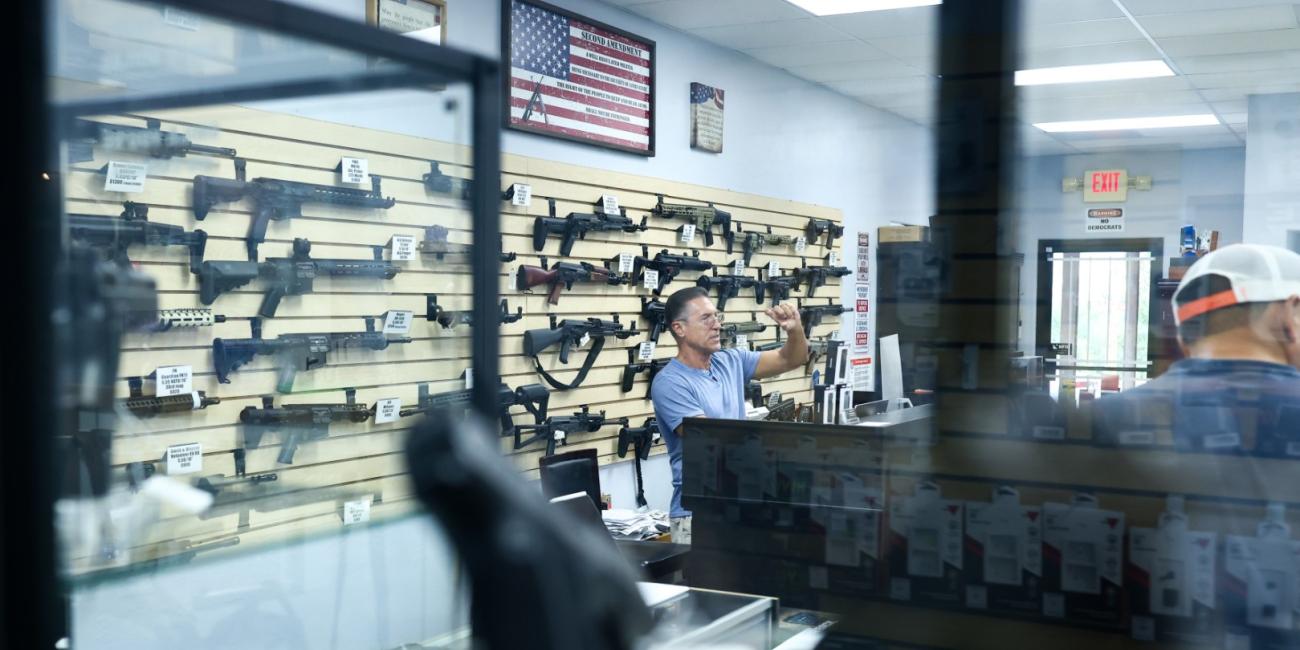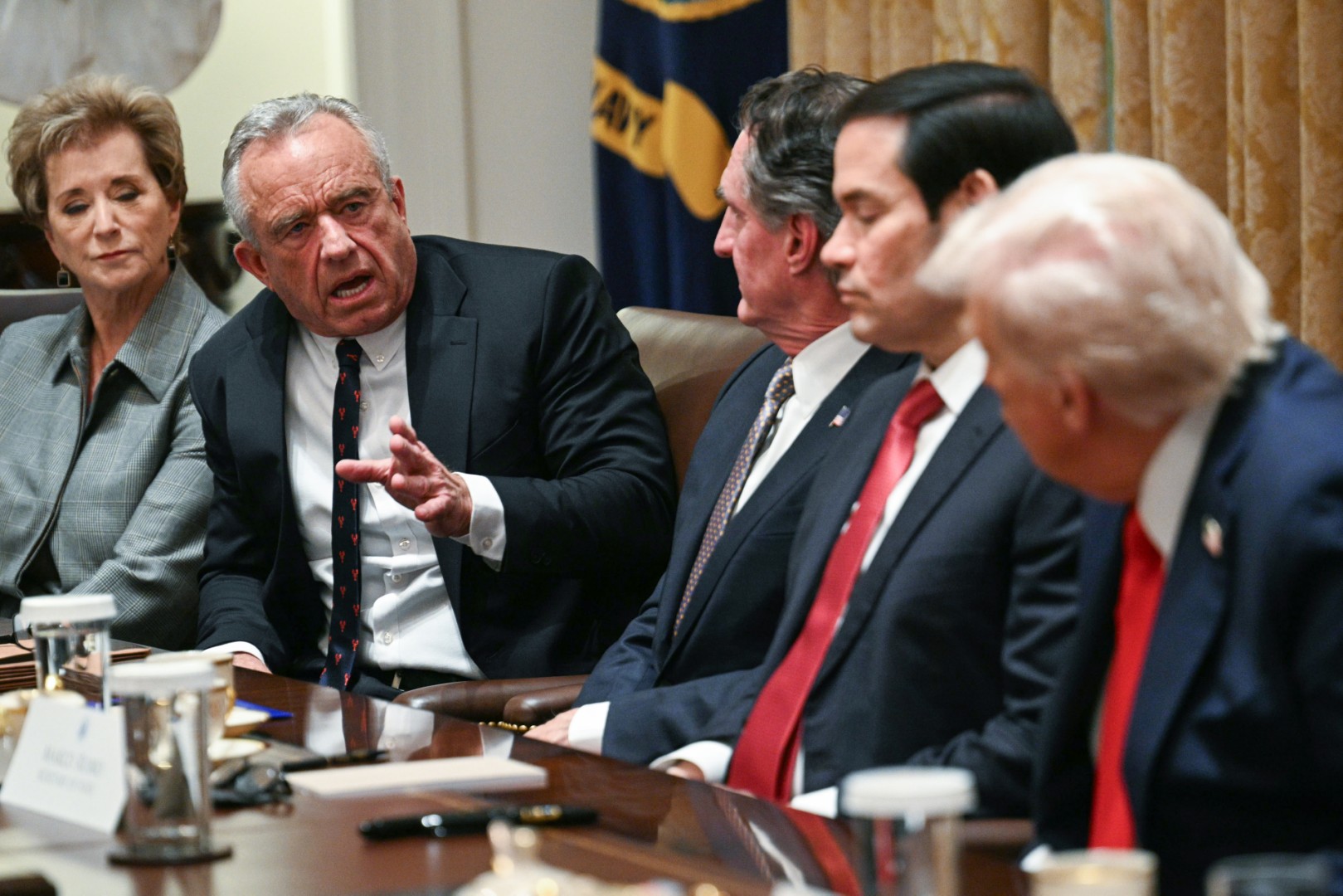
Trump, RFK Jr repeat autism misinformation during cabinet meeting
- Published on October 10, 2025 at 23:35
- 4 min read
- By Marisha GOLDHAMER, AFP USA
The comments in front of the presidential cabinet follow significant pushback to Trump's insistence during a September 22 White House press conference that there was a link between acetaminophen -- the primary ingredient in Tylenol, or paracetamol in Europe -- and autism.
Kennedy, who spent decades spreading vaccine misinformation before Trump appointed him to lead the Department of Health and Human Services, has made uncovering the root causes of autism spectrum disorder (ASD) a central focus of his agency.
Experts say research overwhelmingly suggests that the causes are primarily genetic.
AFP examines four claims from the October 9 meeting, which was streamed live on YouTube (archived here).
Tylenol
At one point in the meeting, Kennedy raised the online response to the president's assertions about Tylenol.
Trump responded: "Don't take Tylenol when you're pregnant. When the baby is born, don't give it Tylenol. If you can avoid it at all, just don't give it Tylenol."
While a few studies have suggested a possible association between autism and acetaminophen use in pregnancy, no causal link has ever been proven. The most rigorous analysis to date -- published in 2024 in JAMA and using siblings as controls -- found no link at all (archived here).
The World Health Organization (WHO), along with health authorities in Canada, the European Union and the United Kingdom, all say there is no conclusive evidence that acetaminophen raises the risk of autism for the fetus (archived here, here, here and here).
Instead, they say acetaminophen remains a safer way to treat fever and pain during pregnancy, since drugs such as aspirin and ibuprofen have proven risks (archived here).
"Decades of research have found that acetaminophen is safe for children when administered as recommended," the American Academy of Pediatrics says in a webpage sent to AFP (archived here).
"Misleading claims that the medicine is not safe and is linked to increased rates of autism send a confusing, dangerous message to parents and expectant parents and does a disservice to autistic individuals."
Helen Tager-Flusberg, a professor at Boston University and autism expert, also refuted Trump's claims (archived here).
"None of the studies have shown that giving Tylenol to babies is linked to a higher risk for autism once you control for all the confounding variables," she told AFP October 9 (archived here).
Circumcision
On Tylenol, Kennedy later added: "Two studies that show children who are circumcised early have double the rate of autism. It's highly likely because they're given Tylenol."
Circumcision, the surgical removal of the foreskin of the penis, has been shown to have medical benefits, including easier genital hygiene and a lower risk of urinary tract infections (archived here).
The procedure is part of a key Jewish ritual and common for boys of Muslim faith. Since 2007, the WHO has recommended it to lower the risk of acquiring HIV, the virus that causes AIDS (archived here).
Kennedy did not specify the studies he was referencing.
One 2013 paper from the United States used the circumcision rate as a proxy for early-life exposure to acetaminophen (archived here).
Another paper published by Danish researchers in 2015 concluded that "boys who undergo ritual circumcision may run a greater risk of developing ASD" (archived here). However, it did not specify if the boys receiving the procedure were treated with acetaminophen.
David Mandell, director of the Penn Center for Mental Health at the University of Pennsylvania School of Medicine, told AFP October 9 that the 2015 paper is "riddled with flaws" (archived here).
A 2022 review of studies found "The highest quality evidence suggest that neonatal and later circumcision has limited or no short‐term or long‐term adverse psychological effects" (archived here).
While Kennedy has claimed to be seeking an explanation for rising rates of autism in the United States since 2000, Boston University's Tager-Flusberg noted that circumcision rates have declined during that period (archived here and here).
Amish
Trump also claimed the Amish, a group of traditionalist Christian Anabaptists living across the United States and Canada, "have no autism" -- repeating another claim from his September 22 press conference.
Experts on autism and Amish populations previously told AFP that while data is limited on the prevalence of ASD in Amish communities, there is no question some members have the condition.
"There is autism among the Amish, but very likely underdiagnosis because they do not access medical care," the Coalition of Autism Scientists, an organization comprising over 250 US autism researchers, said in a September 23 statement.
Measles vaccine
Trump, who has repeatedly recommended against combination vaccines such as the measles, mumps and rubella (MMR) shot, claimed patients should get each inoculation on its own.
"Measles is already separate now," he said. "It works out much better."
This is false. According to the US Centers for Disease Control and Prevention (CDC): "Single-antigen measles vaccine is not available" (archived here).
Longstanding misinformation about the link between the MMR vaccine and autism largely stems from a 1998 paper by Andrew Wakefield, who was struck off as a doctor in the United Kingdom in 2010 (archived here).
The Lancet retracted the study after falsified data was found (archived here and here).
Kennedy's revamped the Advisory Committee on Immunization Practices -- a scientific board meant to make recommendations to the CDC, staffing it with vaccine skeptics. On September 18, it voted that children receive varicella (chickenpox) immunization alone rather than through the combination MMRV shot (archived here and here).
The University of Pennsylvania's Mandell said vaccination is not the cause of autism.
"We have looked at whether children got vaccinated," he told AFP. "We have looked at when they got vaccinated. We have looked at which combinations of vaccines they've gotten. And in all those studies that were well done, we see no association between vaccines and autism."
More of AFP's reporting on misinformation about autism is available here.
Copyright © AFP 2017-2026. Any commercial use of this content requires a subscription. Click here to find out more.
Is there content that you would like AFP to fact-check? Get in touch.
Contact us
